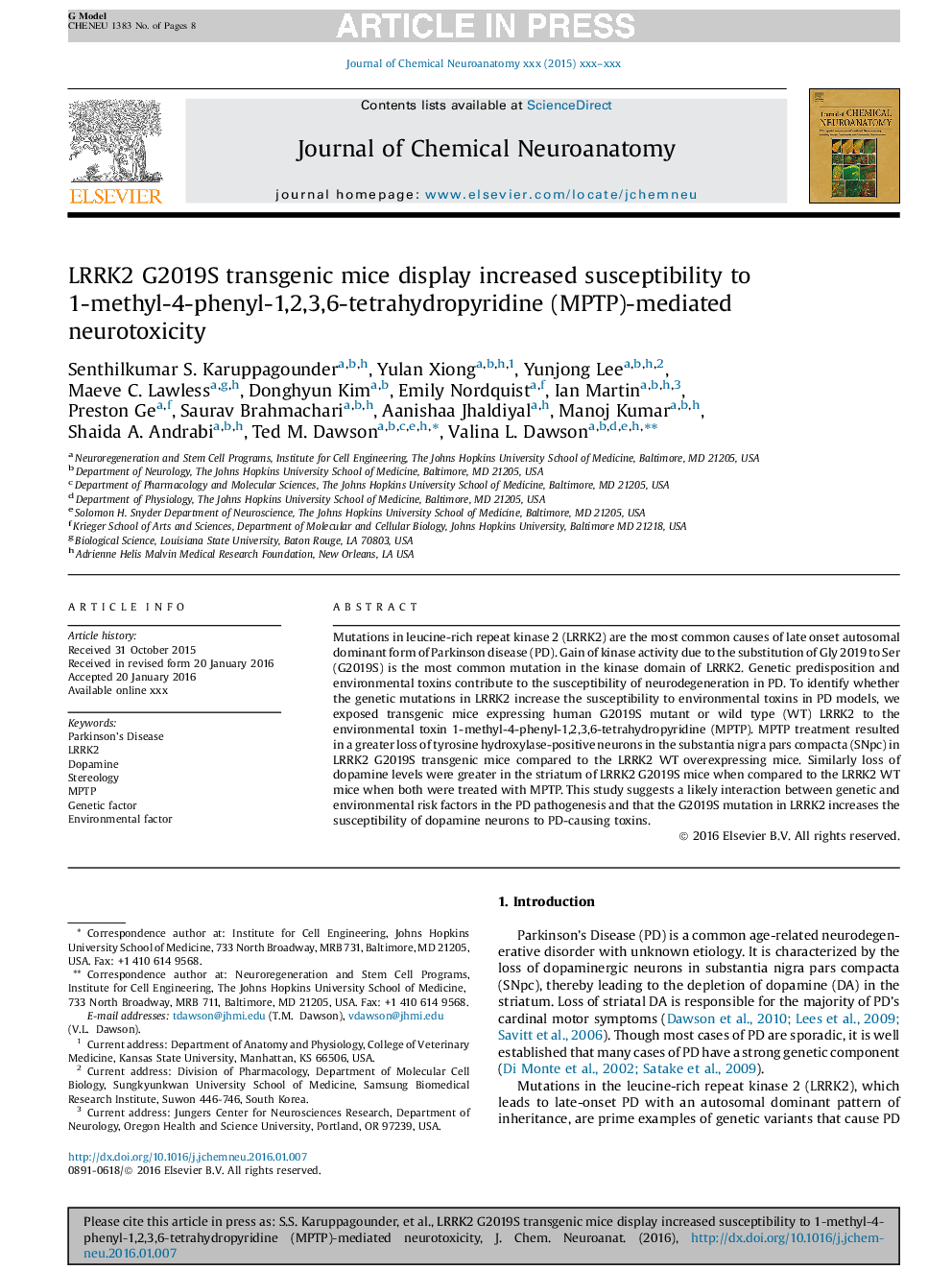| کد مقاله | کد نشریه | سال انتشار | مقاله انگلیسی | نسخه تمام متن |
|---|---|---|---|---|
| 5512726 | 1400598 | 2016 | 8 صفحه PDF | دانلود رایگان |
عنوان انگلیسی مقاله ISI
LRRK2 G2019S transgenic mice display increased susceptibility to 1-methyl-4-phenyl-1,2,3,6-tetrahydropyridine (MPTP)-mediated neurotoxicity
دانلود مقاله + سفارش ترجمه
دانلود مقاله ISI انگلیسی
رایگان برای ایرانیان
کلمات کلیدی
موضوعات مرتبط
علوم زیستی و بیوفناوری
بیوشیمی، ژنتیک و زیست شناسی مولکولی
زیست شیمی
پیش نمایش صفحه اول مقاله

چکیده انگلیسی
Mutations in leucine-rich repeat kinase 2 (LRRK2) are the most common causes of late onset autosomal dominant form of Parkinson disease (PD). Gain of kinase activity due to the substitution of Gly 2019 to Ser (G2019S) is the most common mutation in the kinase domain of LRRK2. Genetic predisposition and environmental toxins contribute to the susceptibility of neurodegeneration in PD. To identify whether the genetic mutations in LRRK2 increase the susceptibility to environmental toxins in PD models, we exposed transgenic mice expressing human G2019S mutant or wild type (WT) LRRK2 to the environmental toxin 1-methyl-4-phenyl-1,2,3,6-tetrahydropyridine (MPTP). MPTP treatment resulted in a greater loss of tyrosine hydroxylase-positive neurons in the substantia nigra pars compacta (SNpc) in LRRK2 G2019S transgenic mice compared to the LRRK2 WT overexpressing mice. Similarly loss of dopamine levels were greater in the striatum of LRRK2 G2019S mice when compared to the LRRK2 WT mice when both were treated with MPTP. This study suggests a likely interaction between genetic and environmental risk factors in the PD pathogenesis and that the G2019S mutation in LRRK2 increases the susceptibility of dopamine neurons to PD-causing toxins.
ناشر
Database: Elsevier - ScienceDirect (ساینس دایرکت)
Journal: Journal of Chemical Neuroanatomy - Volume 76, Part B, October 2016, Pages 90-97
Journal: Journal of Chemical Neuroanatomy - Volume 76, Part B, October 2016, Pages 90-97
نویسندگان
Senthilkumar S. Karuppagounder, Yulan Xiong, Yunjong Lee, Maeve C. Lawless, Donghyun Kim, Emily Nordquist, Ian Martin, Preston Ge, Saurav Brahmachari, Aanishaa Jhaldiyal, Manoj Kumar, Shaida A. Andrabi, Ted M. Dawson, Valina L. Dawson,